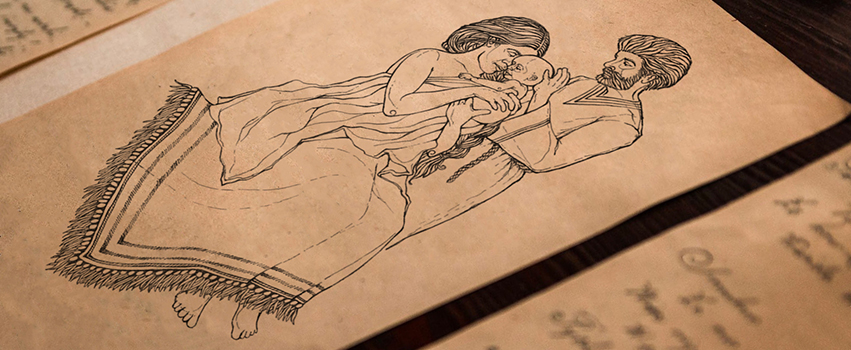
Many have heard of the 12 days of Christmas or at least the song named after it, but few know when exactly those days occur or how they are celebrated. We might think Christmas has stayed the same over the centuries, but it may surprise you to learn just how much our traditions have changed—specifically the 12-day season which begins on December 25, and not in the days leading up to it.
Seasonal Rhythms
Modern life allows us to believe that we can live separately from the rhythms of the seasons. This is especially true in wintertime, where at any moment we can flip a switch and make a dark room come to light or blast our furnaces to push away the cold. But in times past, when light and heat were not so accessible, people found themselves by necessity hunkered down and bored indoors during their quiet winters. Without endless entertainment available at their fingertips, people’s natural inventiveness led them to fill the broader season with a succession of feasts, festivals, performances and ceremonies, most of which centered on the changing seasons or devotion to different saints.
Spanning from autumn until late winter, contemporary major holidays follow a similar pattern, with Halloween, Thanksgiving, Christmas, New Year’s and for some, Mardi Gras or Carnival. However, an extended holiday like the 12 days of Christmas is a practice mostly forgotten by us.
Spanning from December 25 to January 5 and culminating on January 6 with Epiphany, the season contains several feast days recounting the story of Jesus’s birth. For instance, December 28 is the Feast of the Holy Innocents, where Herod, after a visit from the Wise Men, slaughtered the male children of Bethlehem. January 1 commemorates Jesus’s naming and circumcision, and the season ends on January 6 with the Feast of Epiphany, where the Wise Men made their way to Jesus, gave him gifts and proclaimed him king. The season also contains several saint days, such as St. Stephen’s Day (or Boxing Day) on December 26 and St. John’s Day on December 27.
Holiday Traditions
The ways to enter the 12-day season are as diverse as the many countries and cultures who celebrate it. Our traditions take on four general categories: worship, feasts, rest and service. These categories blend into each other, such as when a community gathers to celebrate Christ’s birth through worship and singing, and then disperses to their homes to enjoy a meal, open presents and play board games. Acts of service are traditionally designated for St. Stephen’s Day, but many communities make it a priority during the holidays to serve those in need with their time, food and money.
There are many traditions worth adapting to modern culture—such as a form of caroling called mumming or wassailing, which features a group that goes from house to house in a neighborhood performing a skit, singing carols or playing a game in expectation that the hosts at each home will offer them food and drink.
A game night on New Year’s Eve or Twelfth Night (January 5) is another tradition. And while we could play any modern game, it might be more fun to rediscover traditional seasonal games with intriguing titles like Blind Man’s Bluff, Feed the Dove, Hot Cockles, Snap Dragon, and Yawning For a Cheshire Cheese.
It might be appealing for some to have a quiet Icelandic Christmas, where you give and receive books as gifts, and then read them in a secluded corner during the holiday. Finally, there are many kinds of dishes and desserts that people enjoy cooking, such as the King’s Cake for Epiphany, which contains a bean hidden inside. The fortunate person who discovers it in their slice of cake becomes the king or queen of the Epiphany festival.
Time for Renewal
Our schedules often make it difficult to take an extended amount of time off in the middle of winter. But looking at the holidays as a longer period to rest, serve others, celebrate and enjoy time with those we love is a tradition worth bringing back into our lives. Perhaps the best way to enjoy our Christmases present is to discover how they were once celebrated in the past. PM
Chris Marchand is an ordained Anglican minister and pastor of worship and music at Epiphany Church in Peoria. He publishes the blog and podcast PostConsumer Reports (postconsumerreports.com) and is the author of Celebrating The 12 Days of Christmas: A Guide for Churches and Families, available at amazon.com.
- Log in to post comments

